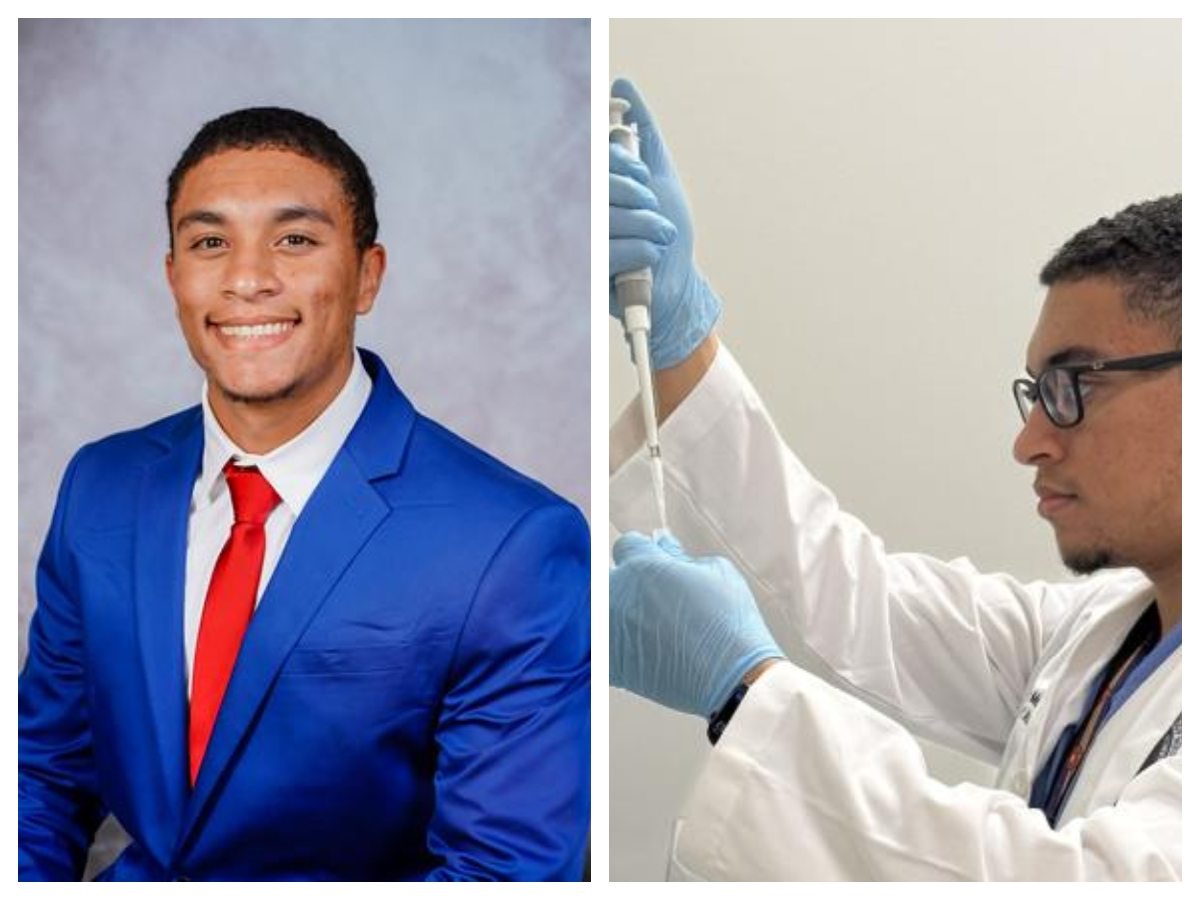Christopher McGinley, an M.D./Ph.D. candidate in biomedical sciences at Howard University College of Medicine, has been named a 2025 recipient of the Thermo Fisher Scientific Antibody Scholarship Award. This $5,000 scholarship recognizes his academic excellence, leadership, and groundbreaking research.
The Thermo Fisher Antibody Scholarship program aims to support and acknowledge promising undergraduate and graduate students engaged in research within antibody, immunology, or molecular biology-related disciplines.
The program helps support and inspire the next generation of scientists pushing the boundaries of biomedical research.
READ ALSO: This Howard University graduate has been selected as the very first Beyoncé reporter
McGinley, who graduated with top honors in cell and molecular biology from West Chester University of Pennsylvania, is now studying biomedicine at Howard University. He’s currently looking into how the endogenous molecule Neuregulin-1 helps in brain repair after a stroke, using “advanced mouse models to uncover spatial and temporal mechanisms of neuroregeneration.” In other words, he uses lab models to understand when and where healing takes place.
“I am deeply honored to receive this recognition from Thermo Fisher,” McGinley said to The Dig. “This award supports my research on brain repair while also motivating me to continue mentoring and serving the next generation of physician-scientists.”
Byron Ford, Ph.D., who’s the chair of the Department of Anatomy and associate dean of research in the Howard University College of Medicine, spoke highly of McGinley, his research mentee.
He called him “a scholar whose dedication to both science and mentorship exemplifies the qualities this award celebrates.”
Selection criteria for the Thermo Fisher Antibody Scholarship Award include academic excellence, compelling research proposals, and demonstrated leadership. This program highlights Thermo Fisher’s deep dedication to fostering scientific advancement, discovery, and education.
Beyond his academic and research contributions, McGinley is also dedicated to leadership and mentorship. He holds the position of research chair for the Howard University chapter of the American Association of Neurological Surgeons and is a member of the career development committee for the American Physician Scientists Association. In addition, he annotates 3D brain MRI reconstructions for neurosurgical research and provides mentorship to undergraduate and incoming medical students.
READ ALSO: Howard University honors 1974 Men’s Soccer Team with hall of fame induction
In his personal life, McGinley is a devoted husband to Mackenzie and a father to their infant son, Roman.
McGinley’s achievement at Howard University brings hope for increased Black representation in STEM fields, particularly in biomedicine. Data reveals a significant lack of diversity in life sciences, with persistent racial gaps in both employment and academic pursuits.
For instance, the Pew Research Center, as reported by John Carroll University, indicates that while White individuals comprise 65% of the life sciences workforce, Black individuals hold only 6% of these jobs, despite making up 11% of all employed adults. Similarly, Hispanic individuals are underrepresented, holding just 8% of life sciences positions.
And when it comes to minority students pursuing STEM degrees, Black students only earned 7% of STEM bachelor’s degrees, and Hispanic students received 12%. A 2019 study also showed that 40% of Black students switch out of their STEM majors – which is higher than the 29% of white students who do the same.
READ ALSO: Meet Imani Jean, the Howard University freshman taking the tennis world by storm










